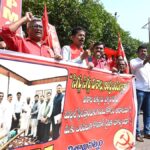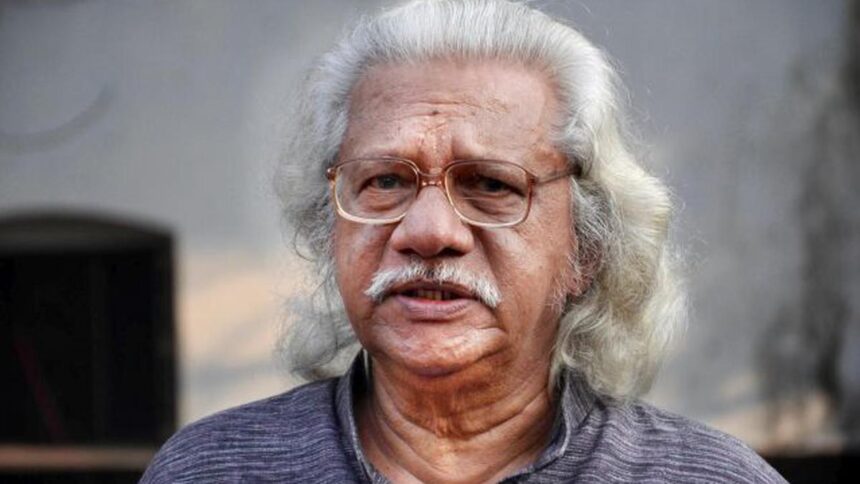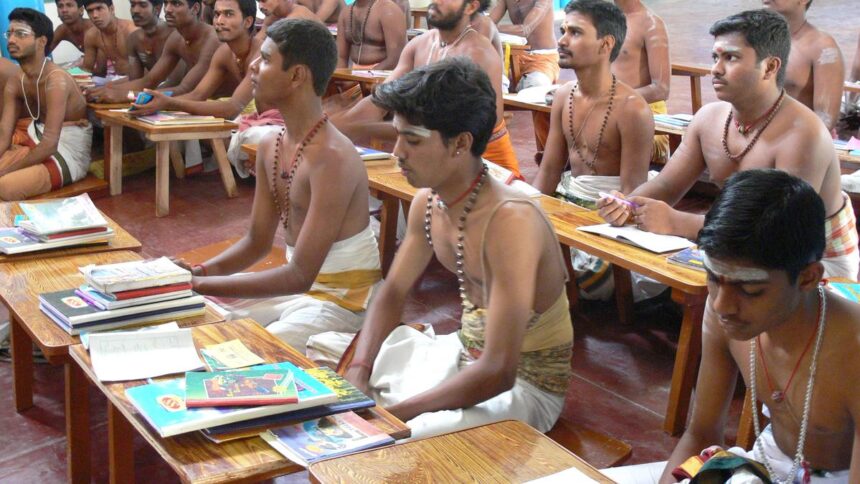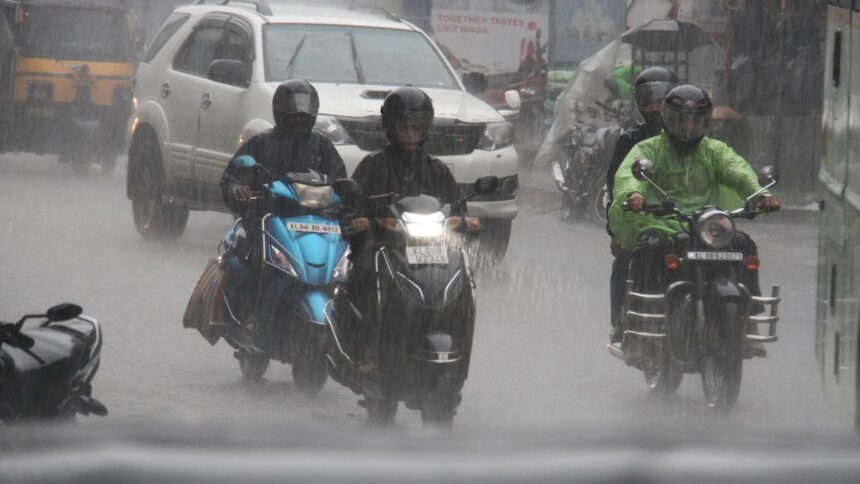
Villagers gather in large numbers in front of the residence of caste-killing victim C. Kavin Selvaganesh, at Arumugamangalam in Thoothukudi district.
| Photo Credit: N. Rajesh
Two weeks ago in Tirunelveli, Kavin Selvaganesh — a Scheduled Caste youth and employee at a leading IT firm — was brutally murdered by the brother of a caste Hindu girl he was in love with. Chief Minister M.K. Stalin, who readily condemned the arrest of Kerala nuns in distant Chhattisgarh, has not yet spoken on this gory crime driven by caste hatred. Leader of Opposition Edappadi K. Palaniswami, who visited the family of Ajithkumar, a security guard killed in illegal police custody, has not met Kavin’s family — he merely condemned the Stalin government for the ‘honour’ crime. Actor Vijay, the Tamilaga Vettri Kazhagam founder and Chief Minister aspirant, who met protesting conservancy workers in Chennai, has maintained silence on the murder.
Such studied silence by politicians is not new. While voters from socially marginalised communities are wooed, they are often used as political doormats. On the other hand, political parties display little hesitation in assiduously cultivating the dominant communities belonging to the Backward and Most Backward Classes.
Although leaders such as former Chief Ministers M. Karunanidhi and Jayalalithaa had endeared themselves to all communities, they too were reluctant to stick their necks out and speak out against killing in the name of caste pride.
Karunanidhi, personally, transcended caste barriers by performing several inter-caste weddings in his own extended family. On the electoral battlefield, Jayalalithaa had resorted to social re-engineering tactics like fielding Scheduled Caste candidates from general constituencies and getting them elected.
Yet, the two leaders did not react in July 2003, when a young couple, Kannagi (a Vanniyar woman) and Murugesan (Scheduled Caste), were force-fed poison and set ablaze in front of a large gathering of villagers in Vriddhachalam in Cuddalore district. The murder itself came to light several days later when the Dalit Panthers of India (now Viduthalai Chiruthaigal Katchi) and the Communist Party of India (Marxist) raised a red flag. This was the first time the term “honour killing” was used in Tamil Nadu to describe a crime driven by caste hatred.

“If you thought, since Murugesan and Kannagi were killed openly in front of villagers, there would not have been any complication in delivery of justice, you are wrong,” writes senior journalist Ilangovan Rajasekaran, in the chapter ‘Naththai Vegathil Neethi’ (Justice at Snail’s Pace) in his book ‘Saathiyin Peyaraal – Aanava Kolaigalin Pathivu’ (In the name of Caste – A Record of Honour Killings). It took 18 years for the trial court to deliver its verdict in the case and another four years for the Supreme Court to uphold justice.
A factor that restricts political response is that in the party’s districts units, the leadership is often vested in the hands of leaders hailing from the dominant caste groups of the region. Even during election campaigns, it is common for mainstream parties to use Scheduled Caste leaders of allied parties canvass for votes only in the habitats of the marginalised sections. They are requested to stay off the streets of caste Hindus, fearing the latter would resent the presence of a Scheduled Caste leader.
Another disturbing feature is that of mainstream parties courting political outfits formed in the name of emancipating their community but actually promote caste pride.
There are, however, rare occasions where leaders have vocally expressed themselves against caste killings. For instance in November 2018, Mr. Stalin, who had taken over as DMK president just three months earlier, exhorted his party cadre to work towards eliminating caste-based discrimination and atrocities and ensure that social justice prevailed in Tamil Nadu as envisioned by the Justice Party. Pointing out that social justice was at the forefront of the Dravidian Movement, he wrote: “But it is now being challenged by the growing number of caste murders in the State. The killing of young couples in the name of caste pride is equivalent to destroying ourselves.” Citing the murder of an inter-caste couple in Krishnagiri, he said, “Tamil Nadu is a State which prides itself on goodwill and being peaceful. It is unacceptable that the number of people who are blood-thirsty in the name of caste is increasing; this should not be allowed.”
However, that was when the DMK was in Opposition benches. Though Mr. Stalin had assured that once his party formed the government, “we will take all steps to prevent such caste killings and take strict legal action against such killings,” nothing much has changed on the ground in the last four years since he became Chief Minister.
DMK sympathisers, however, cite “grassroot realities” to defend Mr. Stalin’s current measured silence. “Ahead of the last Assembly elections, the DMK in its manifesto promised to renew an existing scheme to encourage inter-caste marriages — where the bride or groom is a Scheduled Caste — and enhance the financial support for the beneficiaries. However, parties in the opposite camp had whipped up a campaign saying the DMK was giving incentives to Scheduled Caste youth to lure girls from other communities. One BJP supporter, who was followed on X by Prime Minister Narendra Modi, warned: “This is going to incite caste clashes in TN instead of healing the wounds.” The DMK had to move the Election Commission against such deliberately misleading campaign, said a party sympathiser.
But is that reason enough to remain silent in the face of murder? That is a question mainstream leaders — and aspiring Chief Ministers — must seriously ask themselves. Until then, the silence will continue to speak louder than words.
Published – August 13, 2025 06:00 am IST
















